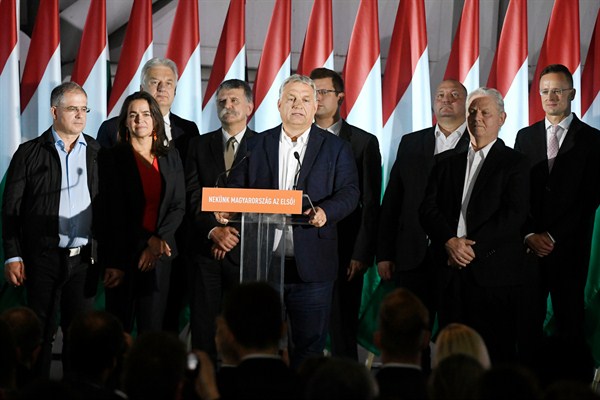Hungary’s populist prime minister, Viktor Orban, and his right-wing Fidesz party incurred significant losses in local elections earlier this month, as opposition candidates won control in 11 of the country’s 23 major cities, unseating several Fidesz-backed incumbents. In an email interview with WPR, Péter Krekó, executive director of Political Capital, a Budapest-based policy research and consulting institute, explains how opposition parties were able to notch so many wins against Fidesz and why, in addition to a setback for his party, the elections were a personal blow for Orban.
World Politics Review: What allowed so many opposition candidates to unseat incumbents from Fidesz?
Péter Krekó: These elections were an important breakthrough for the opposition, especially in big cities. There were two main reasons for this. First, and most importantly, this was the first election where the main opposition parties from across the political spectrum—from liberal parties like the Democratic Coalition and the Momentum Movement to the right-wing Jobbik—managed to cooperate, unifying around a single candidate in key races. This allowed them to consolidate the anti-Fidesz vote, a huge asset in Hungary’s single-round, first-past-the-post election system.

